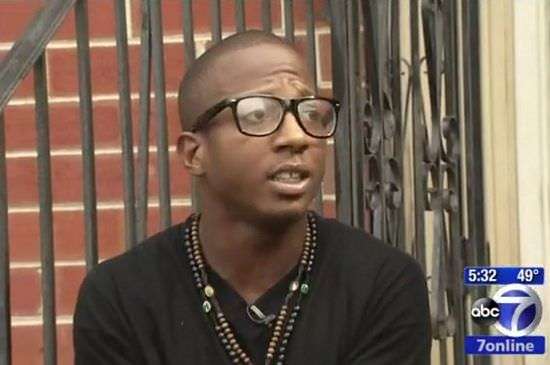The Dreadful Criminal Justice System That Destroyed Kalief Browder
Three years in prison without a trial, often in solitary, contributed to young man's suicide.


Elizabeth Nolan Brown linked to a piece at The New Yorker this morning about the suicide of Kalief Browder, 22, who spent three years at Rikers Island, often stuck in solitary confinement, without ever seeing a trial. The journalist, Jennifer Gonnerman, originally dove deep into Browder's case back in October, and it's worthy of a read.
The thing to understand about Browder, as is often the case when we hear about abuses within the criminal justice system, is that his situation is not as anomalous as some people think. Browder is not really an outlier, though his case may seem particularly outrageous. The New York City courts have a particularly bad reputation for not remotely having anything resembling speedy trials. From a report in 2013 from WNYC:
Over the past decade, as New York City's backlog of felony cases has grown, so too has the time defendants are spending behind bars before trial. The average pretrial detention in a felony case was 95 days in 2012 — up 25 percent from a decade earlier, despite a drop in new felony cases, according to a recent report from City University of New York researchers. And some defendants spend significantly longer behind bars. Of the people who spent time in jail during 2012, about 3,200 were behind bars for a year or more awaiting their day in court, according to city data.
The context for that reporting was for the case of Donavan Drayton, who was arrested and charged with murder and spent five years behind bars before getting his trial. He was acquitted.
Gonnerman's obituary for Browder describes a man whose mind was absolutely destroyed by his experiences. After all the suffering, physical abuse, and delays in prison, his case was eventually dropped due to lack of evidence. The prosecutors delayed the case for years, and he refused to take a plea deal. Attorney Paul V. Prestia is suing over the case and told Gonnerman he believes prosecutors deliberately dragged their feet in order to try to get a plea rather than deal with a trial:
Prestia, in his lawsuit, alleges "malicious prosecution," charging that Johnson's prosecutors were "representing to the court that they would be 'ready' for trial, when in fact, they never were." Prestia said, "The million-dollar question is: When did they really know they didn't have a witness? Did they really not know until 2013?" He suspects that, as he wrote in his complaint, they were "seeking long, undue adjournments of these cases to procure a guilty plea from plaintiff." The city has denied all allegations of wrongdoing, and Johnson, when I asked about these accusations, said, "Certainly if there is something uncovered that we did wrong, I will deal with that here. But I don't expect that to be the case."
Of political note, presidential candidate Sen. Rand Paul (R-Ky.) knew of Browder's situation and mentioned him in campaign speeches when talking about criminal justice reform. On Sunday, Paul both Tweeted and posted on Facebook condolences to Browder's family. Here's what Paul recently said about Browder in a speech in New Hampshire:
"So when you see people and you see some of this anger at people in the streets and you're like, 'Why are they so unhappy?' Think about Kalief Browder and think about how his friends must feel about American justice, how his parents must feel and about how his community feels," Paul said Saturday in Concord, N.H. "If we become the party that cares about the Sixth Amendment as much as we do the Second Amendment, we're going to dominate."
Since stories like Browder's and Drayton's have come out, New York Mayor Bill de Blasio and chief Judge Jonathan Lippman have announced reforms to speed up trials. States are now also considering rules to restrict the use of solitary confinement, particularly on teens. Watch ReasonTV on solitary confinement below:


Show Comments (77)